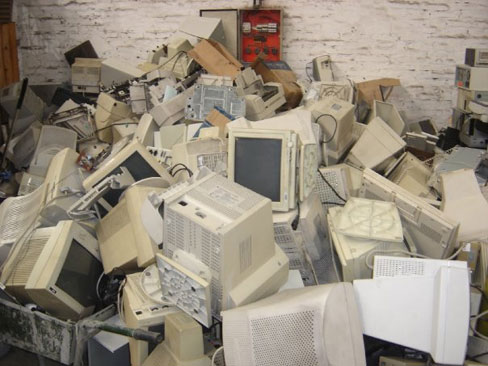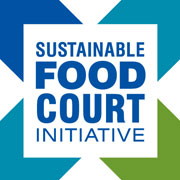The Illinois Electronic Products Recycling and Reuse Act is breaking the mold of 25 state e-scrap laws. Under the law, passed in 2008 and amended in 2011, companies that reuse machines get twice the credit of those companies that recycle the materials.
The law addresses the fastest growing part of the U.S. waste stream, mandating that manufacturers pay for recycling their products after consumers are through with them. According to Mel Nickerson, of the Environmental Law & Policy Center, over 130 million cell phones are discarded annually in the U.S. Most e-scrap is sent overseas where improper “recycling” burden people and the environment with dioxins, mercury, lead and other toxics. When these materials go to U.S. landfills they act as filters for rain, which then pollutes groundwater with these same toxic materials.
“This is cave man technology”
Research by Brenda Platt points out that refurbished computers for every 10,000 tons of computers refurbished 296 jobs are created. When this amount of material goes to landfills, one job in created.
Nickerson points out that there is more gold concentrated in one ton of obsolete electronic products than in one ton of gold ore recovered from mining.
The Illinois law, which banned e-scrap from landfills in the state, originally covered four products – computers, televisions, printers and monitors. It has been amended to include 14 more products including electronic keyboards, fax machines, videocassette recorders, portable digital music players, digital video disc players, video game consoles, small scale servers, scanners, electronic mice, digital converter boxes, cable receivers, and satellite receivers.
New laws are required because current laws, which regulate the export of products like cathode tubes, are not rigorously enforced according to a 2008 U.S. Government Accountability Office report.
The landfill ban creates new markets for small companies. By emphasizing repair and reuse, the Illinois law helps small companies thrive and keeps electronics in the local economy. This also helps non-profit companies that repair computers and makes them available to organizations and schools that serve low income people for free or at steep discounts. Just the opposite occurs under rules such as Pennsylvania’s new e-scrap law. The Pennsylvania law, which requires registration with the state, favors large companies that ship valuable machines, parts, and alloys out of the local economy for cheap disposal abroad.
Nickerson points out that additional policies will further stimulate local recycling, reuse and resale. These include a ban on export of e-scrap and minimum content laws for the production of new products.
The Illinois law, says Nickerson, was consumer and citizen driven. It was not the result of industry lobbyists that seek to propel the churning of new products and are opposed to refurbishing and repair, which cuts into their markets.
For more information contact Mel Nickerson at the Environmental Law & Policy Center, mnickerson@elpc.org or 312.795.3732.




